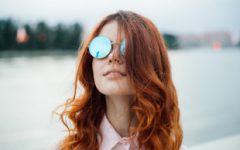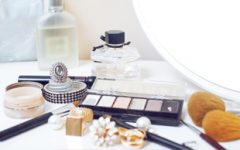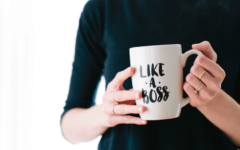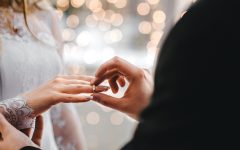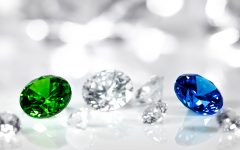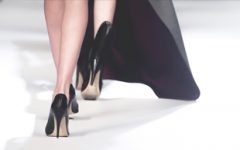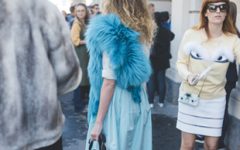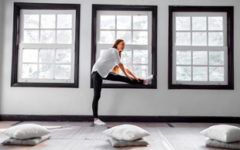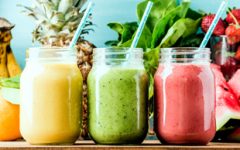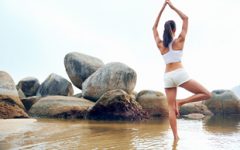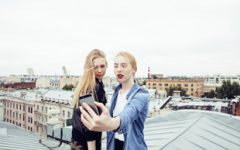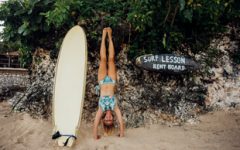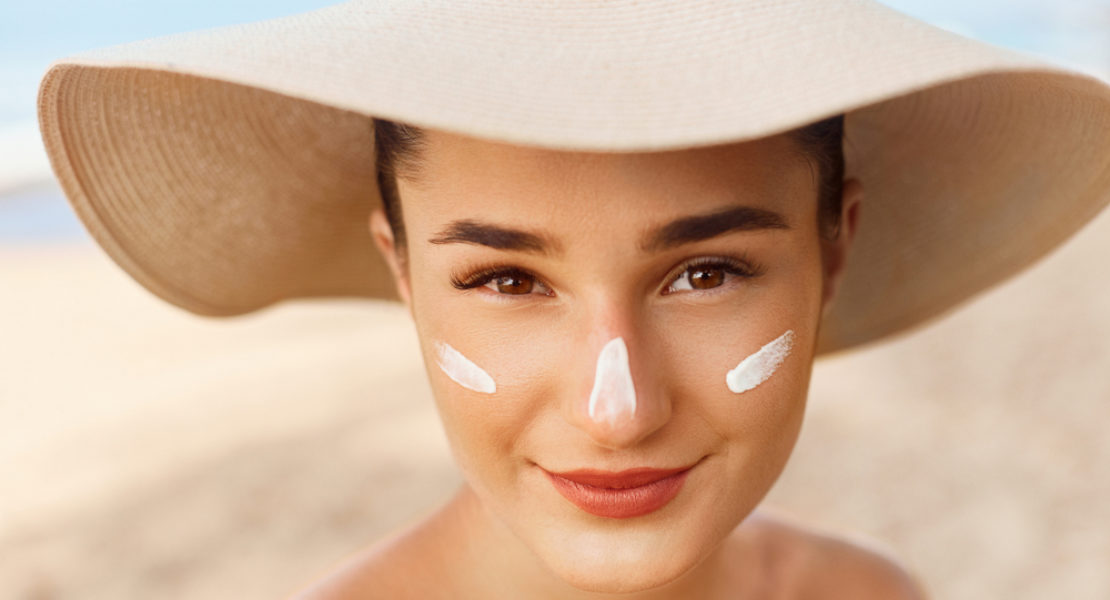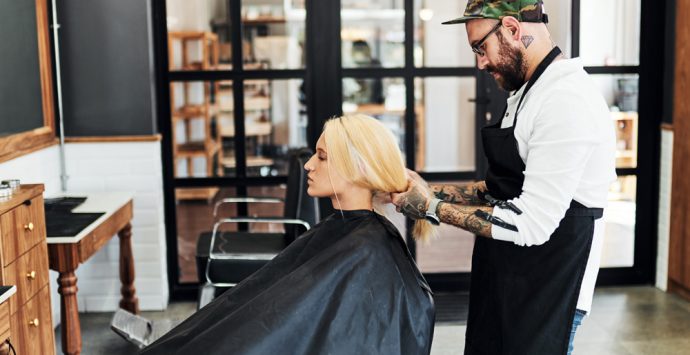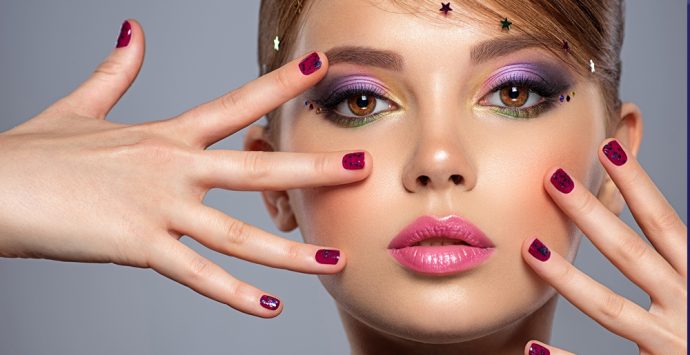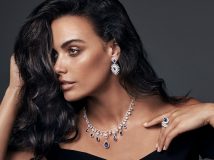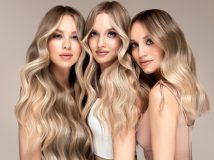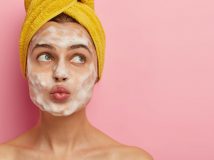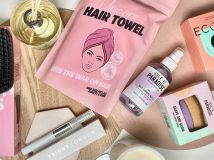
It’s officially the beginning of Autumn and many of us are switching out our bikinis for scarves as it gets colder. Likewise, many of us are packing away the sunscreen. Unfortunately, just because it’s chilly doesn’t mean that we’re protected from the damaging rays of the sun.
First, let’s take a look at the science behind how and why the sun damages our skin and how it accelerates signs of aging.
There are two kinds of rays given off by the sun: UVA and UVB. While both are bad for our skin, they affect the skin in different ways.
UVA rays account for approximately 95% of the UV rays that reach our skin and they are present all year round, even when it’s cloudy and the sun isn’t ‘out’. These rays penetrate deeply into the skin, affecting cells in the lower layers of the skin. UVA rays are the ones that cause premature aging and wrinkles.
UVB rays account for 5% of the rays that touch our skin and unlike UVA, the intensity of UVB rays fluctuates according to location, time of day and season. These rays don’t reach the deeper layers of your skin and really only affect the top layer of the skin. UVB rays cause sunburn and these are the rays that you can actually feel affecting your skin.
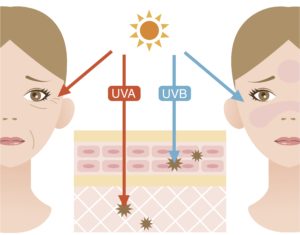
Another difference between UVA and UVB is that the UVA even penetrates glass, while UVB doesn’t. That’s right: UVA rays can reach you in your office, your car and your home.
So while both types of UV rays damage the skin and contribute to signs of aging, UVA are the more insidious type that causes deep, long-term damage. Especially because they’re always around.
But don’t despair yet! You can protect yourself from both UVA and UVB damage.
Sunscreen is one of the best ways to protect yourself while you’re out and about (and even at home)! While you might be thinking, “hey I’ll just slap on any old sunscreen”, think again. Here are a few tips for sun protection all year round:
- High SPF – While the Cancer Council recommends sunscreens with an SPF of at least 30, SPF50+ offers more protection.
- UVA and UVB protection – Make sure your sunscreen is labelled ‘broad-spectrum’. This means that it protects against both UVA and UVB rays. Sunscreens that are not labelled ‘broad-spectrum’ only protect against UVB rays.
- Use enough – You have to make sure that you’re applying enough sunblock to adequately protect your skin. The Cancer Council recommends around 5ml (1 teaspoon) for your face.
- Reapply throughout the day – Putting on sunscreen in the morning isn’t going to cut it. You really do need to reapply every two hours to ensure maximum protection.
Here are a few recommendations for our favourite sunscreens:
Biore UV Aqua Rich Watery Essence SPF50/PA++++
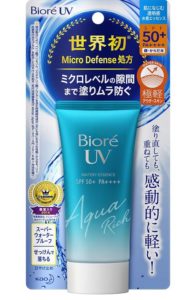
This Japanese water-based sunscreen has over 900 5-star reviews on Amazon and is heaven for those with skin on the oilier side. The lightweight formula makes it perfect for those who have avoided sunscreen in the past due to how it made their skin feel. While a little difficult to track down in Australia, this sunscreen is available on Amazon.
Mecca Cosmetica To Save Face SPF50+ Superscreen
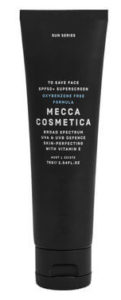
A sunscreen from a little closer to home, the Mecca Cosmetica ‘Superscreen’ offers broad-spectrum protection and the lightweight formula leaves a hydrating, matte finish. The formula also includes hyaluronic acid, pomegranate extract, and Vitamin E to hydrate and protect against free radicals.
Neutrogena Hydro Boost Water Gel Lotion SPF50
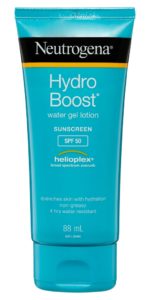
For the budget-savvy amongst us, the Neutrogena Hydro Boost Water Gel Lotion is an affordable and accessible dupe for the Biore Watery Essence sunscreen. A lightweight, non-greasy formula glides on the skin easily and hydrates without leaving you looking oily. With an SPF of 50 and broad-spectrum protection, this sunscreen ticks all the boxes.
La Roche-Posay Anthelios XL Ultra-Light Fluid SPF50+
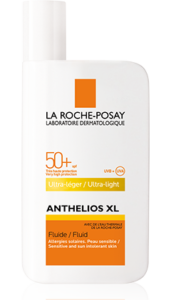
This sunscreen from French pharmacy brand La Roche-Posay is non-comedogenic and is specifically formulated for sensitive-skin. The ultra-light texture will not leave you feeling greasy, and it also boasts high broad-spectrum protection and an SPF of 50.
Protecting your skin is an easy way to prevent signs of aging and whatever sunscreen you end up using will ultimately keep you looking young. Stay tuned for more beauty news.

